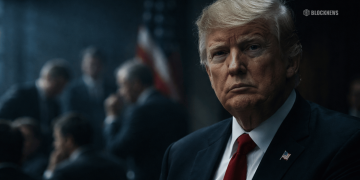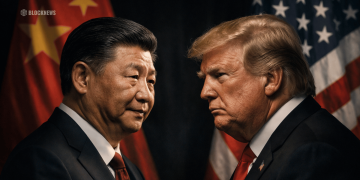In a first-ever crypto insider trading scheme, the DOJ and FBI brought wire fraud charges and conspiracy to commit wire fraud against a Coinbase employee for tipping individuals about which crypto assets would be listed on the centralized exchange next. In a similar action, the SEC brought charges alleging that some of these assets are securities.
The Facts Alleged in the Indictment
The DOJ and FBI announced (via an unsealed indictment) charges against former Coinbase employee and others for wire fraud and wire fraud conspiracy regarding crypto assets that were to be listed on Coinbase in the future. In this first-ever crypto insider trading tipper scheme, defendants made illegal trades “in at least 25 different crypto assets and realized ill-gotten gains totaling approximately $1.5 million.”
As alleged in the indictment, beginning in October 2020, Ishan Wahi was working at Coinbase as a product manager who worked on the asset listing team. There, he dealt with confidential information, especially that which involved which crypto assets were scheduled to be listed next on Coinbase. Wahi was also a member of a Coinbase messaging channel engaged with the asset listing process.
The government alleged that Wahi knew in advance certain crypto assets that would be listed and the timing of the public announcements. Wahi then misprinted this confidential information by tipping either his brother or his friend and associate so they could make profitable trades. The defendants used anonymous Ethereum wallets to acquire the crypto assets. After the public announcements, the defendants sold the crypto assets for profits—totaling $1.5 million. They then concealed their transactions by using the accounts of others. Further, Wahi then attempted to flee the United States.
Remarks from the DOJ and FBI
Mr. Wahi is being charged with two counts of wire fraud conspiracy and two counts of wire fraud. Each count carries a maximum sentence of 20 years. U.S. Attorney Damian Williams noted,
Today’s charges are a further reminder that Web3 is not a law-free zone. Our message with these charges is clear: fraud is fraud is fraud, whether it occurs on the blockchain or on Wall Street.
FBI Assistant Director Michael J. Driscoll added,
Although the allegations in this case relate to transactions made in a crypto exchange – rather than a more traditional financial market – they still constitute insider trading. Today’s action should demonstrate the FBI’s commitment to protecting the integrity of all financial markets – both ‘old’ and “new.”
The SEC´s Charges
The SEC charged the same defendants with insider trading in a related case. The SEC rationalized in their complaint that at least 9 of the 25 assets were securities that were not correctly registered with the Commission. In addition, the complaint alleged that the defendants violated the securities laws’ antifraud provisions.
Director of the SEC’s Division of Enforcement Gurbir S. Grewal noted,
We are not concerned with labels, but rather the economic realities of an offering. In this case, those realities affirm that a number of the crypto assets at issue were securities, and, as alleged, the defendants engaged in typical insider trading ahead of their listing on Coinbase.
Arguments Against These Facts as an Insider Trading Scheme
Mr. Howard Fischer, a partner at law firm Moses & Singer in New York, asserted that this could not be an insider trading case “because there is no such thing as insider trading for a non-security like a crypto asset” like the ones tradeable on Coinbase. This is why, he argued, “the prosecutors have had to use wire fraud.”
Coinbase’s CEO, Brian Armstrong, agreed deeply with this position, firmly stating that “[n]o assets listed on our platform are securities, and the SEC charges are an unfortunate distraction.” Regarding the actual charge of insider trading, Armstrong stated in a blog post,
Coinbase takes allegations of improper use of company information very seriously, as demonstrated by our rapid investigation of this matter. Again, we have zero tolerance for this kind of misconduct . . . .
The attorney for Mr. Wahi declined to comment.
Conclusion
Defendants, in this case, faced multiple charges from several federal government agencies. While there is disagreement on the propriety of the actual expenses, it shows that crypto activity will be investigated and prosecuted to the same extent—if not more—than traditional assets.














